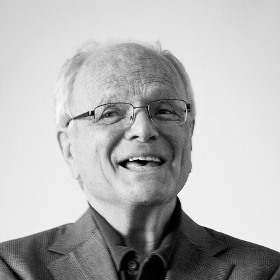Research
Entrepreneurship and Innovation Management - Sources of Innovative Ideas
Our research explores the origins of innovative business ideas - the intersection where entrepreneurship and innovation management meet. With rapid advancements in information and communication technologies, this field has gained significant momentum in recent years.
A key insight: many groundbreaking innovations are not created by producers, but by users. These so-called user innovations have become increasingly important, particularly in contexts like open-source software and virtual user communities. Digital tools have made it easier for users to self-organize and collaborate, leading to technological progress that is not only more frequent but also more transparent and traceable.
The founding of new businesses is widely acknowledged as a critical driver of economic health and growth. Especially impactful are innovative start-ups that bridge technology and business. By deepening our understanding of where new business ideas come from, we aim to:
Better equip students aspiring to start their own ventures
Inform public policy and start-up support initiatives
Improve long-term growth prospects for start-ups and spin-offs
Ultimately, our research contributes to strengthening Austria’s position in global innovation and entrepreneurship.
User Innovation Research Initiative

The User Innovation Research Initiative is a research program which aims to deepen our understanding of the phenomenon of user innovation and is hosted by the Institute for Entrepreneurship and Innovation at the Vienna University of Economics & Business.
The Phenomenon
Many Users Innovate: Nearly three decades of research into the sources of innovation, pioneered and still driven by Eric von Hippel (MIT), has revealed that users can be surprisingly creative and innovative. In many cases, the users themselves – and not manufacturers – are the originators of new products and services.
Empirical studies, for example in the fields of computers, banking, petroleum processing, software, manufacturing processes, the semi-conductor industry and many sports industries like snowboarding, windsurfing, or kayaking have shown that the most important innovations in the evolution of industries were originated by users.
User innovation is not a rare occurrence. The share of user innovators in the fields studied to date range from 10% (outdoor consumer products) to almost 80% (extreme sporting communities).
The advent of the internet has propelled user innovativeness, as it is now much easier for users to interact with other users. The results of such global user networks and communities include open source software or Wikipedia, to name just two examples.
Companies and academics alike are increasingly searching for ways to reclaim the territory of user innovation for innovation management and product development.
The Focus Themes
The User Innovation Research Initiative aims to deepen our understanding of the phenomenon of user innovation. We search for patterns and mechanisms and, building on our insights, develop and improve practical methods in order to harness user innovativeness for companies and society overall. Our research is organized in four areas:
International Research Partners
Outstanding User Innovation Research Scholarship
Outstanding international researchers who want to visit and collaborate with the User Innovation Research Initiative group in Vienna are provided with office space and can apply for the 'Outstanding User Innovation Research Scholarship' in order to facilitate their stay.
Interested in Collaborating?
We are highly interested in collaborating with scholars as well as practitioners with an interest in one of the focus areas of our User Innovation Research Initiative.
For scholars: If you are interested in sharing your ideas, discussing and presenting your work, or launching joint projects please feel free to contact the initative leader Nikolaus Franke (nikolaus.franke@wu.ac.at) or one of the initiative managers (see below) for further information.
For practitioners: If you are interested in collaborating with or sponsoring the User Innovation Research Initiative group, there are many different ways to do so. Please feel free to contact either the initative leader Nikolaus Franke (nikolaus.franke@wu.ac.at) or one of the initiative managers (see below) for further information.
Contact
Nikolaus Franke
Peter Keinz
Further Relevant Links
A 'cornerstone' book about user innovation is 'Democratizing Innovation' by Prof. Eric von Hippel (MIT). A free download is available at:
http://web.mit.edu/evhippel/www/books.htm
A collection of relevant research papers on user innovation is available at:
http://evhippel.mit.edu/papers/
A good website on mass customization (in German) is
www.mass-customization.de
Selected Research Papers
E&I Institute team members are active researchers and who have conducted numerous research projects. Their results are published in internationally leading journals.
Most publications focus on open / user innovation (lead user method, crowdsourcing, toolkits for user innovation, innovation communities etc.).
Feel free to read and download the research papers below (for non-commercial use only).
A full list of the E&I publications can be found in the WU-FIDES system.
| Krause, F., Görgen, J., de Bellis, E., Franke, N., Burghartz, P., Klanner, I.-M., & Häubl G. 2023. One-of-a-Kind Products: Leveraging Strict Uniqueness in Mass Customization, International Journal of Research in Marketing (2023), doi.org/10.1016/j.ijresmar.2023.04.002 (full text) |
| Franke, N., & Lüthje, C. (Jan. 2020). User Innovation. Oxford Research Encyclopedia of Business and Management. Retrieved 15 Jun. 2020 from: oxfordre.com/business/view/10.1093/acrefore/9780190224851.001.0001/acrefore-9780190224851-e-37?rskey=XVdOkk&result=2 (full text) |
| Bradonjic, Philip, Nikolaus Franke, and Christian Lüthje. 2019. "Decision-makers’ underestimation of user innovation." Research Policy, 48(6): 1354-1361, doi.org/10.1016/j.respol.2019.01.020. (full text) |
| Heinz Pernegger, Norbert Wermes, Luigi Mele, Mar Capeans, Ettore Zaffaroni, Barbara Mehner, Ingrid Jonak-Auer. Innovating Advanced Radiation Instruments. Impact, 2018 (1), pp. 54-56 (3). doi: 10.21820/23987073.2018.54 (full text) |
| Vandor, Peter and Nikolaus Franke. "See Paris and… found a business? The impact of cross-cultural experience on opportunity recognition capabilities", Journal of Business Venturing, Volume 31, Issue 4, July 2016, Pages 388-407, ISSN 0883-9026, dx.doi.org/10.1016/j.jbusvent.2016.03.003. (full text) |
| Bauer, Julia, Nikolaus Franke, and Philipp Tuertscher. 2016. “Intellectual Property Norms in Online Communities: How User-Organized Intellectual Property Regulation Supports Innovation.” Information Systems Research 27 (4): 724–50. doi:10.1287/isre.2016.0649.(full text) |
| Franke, Nikolaus, Schirg, Florian, Reinsberger, Kathrin. 2016. The frequency of end-user innovation: A re-estimation of extant findings. Research Policy 45 (8): 1684-1689. doi: 10.1016/j.respol.2016.04.012 (full text) |
| Kratzer, Jan, Lettl, Christopher., Franke, Nikolaus and Gloor, Peter. 2015. The Social Network Position of Lead Users. Journal of Product Innovation Management. doi: 10.1111/jpim.12291 (full text) |
| Franke, Nikolaus, Hader, Christopher. 2014. Mass or only "niche" customization? Why we should interpret configuration toolkits as learning instruments. Journal of Product Innovation Management 31 (5): *-*. (full text) |
| Hienerth, Christoph, Lettl, Christopher, Keinz, Peter. 2013. Synergies among producer firms, lead users, and user communities: The case of the LEGO producer-user ecosystem. Journal of Product Innovation Management 31 (4): 1214-1234. (full text) |
| Franke, Nikolaus, Keinz, Peter, Klausberger, Katharina. 2013. "Does This Sound Like a Fair Deal?" Antecedents and Consequences of Fairness Expectations in the Individual's Decision to Participate in Firm Innovation. Organization Science 24 (5): 1495-1516. (full text) |
| Franke, Nikolaus, Schreier, Martin. 2010. Why customers value self-designed products: The importance of process effort and enjoyment. Journal of Product Innovation Management 27 (7): 1020-1031. (full text) |
| Franke, Nikolaus, Schreier, Martin, Kaiser, Ulrike. 2010. The "I designed it myself" effect in mass customization. Management Science (MS) 56 (1): 125-140. (full text) |
| Franke, Nikolaus, Schreier, Martin. 2008. Product uniqueness as a driver of customer utility in mass customization. Marketing Letters 19 (2): 93-107. (full text) |
| Franke, Nikolaus, Keinz, Peter, Schreier, Martin. 2008. Complementing mass customization toolkits with user communities: How peer input improves customer self-design. Journal of Product Innovation Management 25 (6): 546-559. (full text) |
| Franke, Nikolaus, Gruber, Marc, Harhoff, Dietmar, Henkel, Joachim. 2008. Venture capitalists' evaluations of start-up teams: Trade-offs, knock-out criteria, and the impact of VC experience. Entrepreneurship: Theory and Practice 32 (3): 459-483. (full text) |
| Franke, Nikolaus, von Hippel, Eric, Schreier, Martin. 2006. Finding commercially attractive user innovations: A test of lead user theory. Journal of Product Innovation Management 23 (4): 301-315. (full text) |
| Franke, Nikolaus, Piller, Frank. 2004. Value creation by toolkits for user innovation and design: The case of the watch market. Journal of Product Innovation Management 21 (6): 401-415. (full text) |
| Franke, Nikolaus, Lüthje, Christian. 2003. The 'making' of an entrepreneur: Testing a model of entrepreneurial intent among engineering students at MIT. R&D Management 33 (2): 135-146. (full text) |
Dissertation
Interested in Writing a Dissertation at E&I?
You are warmly invited to apply if you’re interested in pursuing a dissertation under the supervision of Prof. Nikolaus Franke. Below, you’ll find key information about the expectations, structure, and goals of such a research project.
What Is a Dissertation?
A dissertation is an independent, scholarly contribution to scientific research on a relevant topic. In addition to a strong theoretical foundation, a quantitative-empirical component is generally required - typically in the form of a survey, secondary data analysis, or meta-analysis.
Structure and Process
A dissertation usually follows a two-phase structure:
Defining Your Research Question: You begin by identifying a specific research gap. This requires conducting a state-of-the-art literature review that reflects the global status of academic research in your field. The goal is to formulate a clear, well-justified research question that is both narrow and relevan
Filling the Research Gap: Next, you derive hypotheses or propositions based on theory and test them through your own empirical study. This is your core contribution. A successful dissertation combines:
a solid theoretical foundation
a well-defined research gap
rigorous empirical work
and a synthesis of findings with existing literature
High-quality articles in top-tier international journals should serve as role models. Even though they are often highly condensed, they exemplify the clarity, rigor, and relevance your work should strive for.
Your Goal: A Contribution to International Research
The ultimate aim of your dissertation is to advance international academic knowledge and create new, relevant insights. This means actively participating in the scientific discourse — not letting your dissertation gather dust in an archive.
Present at International Conferences: Sharing your preliminary results and getting feedback is invaluable. Doctoral candidates at the institute have previously presented at renowned conferences such as:
Academy of Management (AoM)
American Marketing Association (AMA)
R&D Management Conference
RENT – Research in Entrepreneurship and Small Business
European Academy of Management (EURAM)
Publish in Peer-Reviewed Journals: The ultimate goal is to publish your findings in an international academic journal. This ensures visibility, credibility, and impact for your work within the scientific community.
Support from the Institute
While these goals are ambitious, you won’t be alone. The E&I Institute offers:
Access to extensive expertise and research processes
A strong support network
Valuable contacts and collaboration opportunities
Many former doctoral candidates have received prestigious awards such as the AMA Best Paper Award, Stephan Koren Prize, and Rudolf Sallinger Prize — proving that even early-career researchers can make a meaningful impact.
What We Expect from You
A dissertation represents a significant scientific achievement — far beyond a continuation of your previous studies. To succeed, you should bring:
Strong analytical and research skills
In-depth knowledge of empirical methods, including statistics, econometrics, and social research
Willingness to learn, perform, and grow continuously
Please also consult the WU Dissertation Office for formal requirements and guidelines.
If you’re ready to make a real contribution to international research and are committed to academic excellence, we look forward to hearing from you.
Institute for Entrepreneurship & Innovation
![[Translate to English:]](/fileadmin/wu/_processed_/b/f/csm_104-Laptop-960_v1_8833b81630.jpg)







